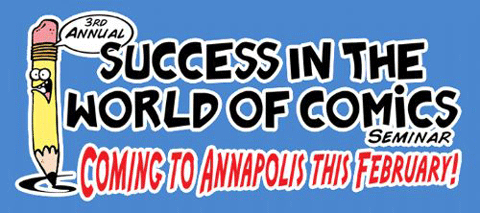At the Success in Comics seminar a few weeks back, someone asked me if I considered myself more of an artist or a writer. I answered that I considered myself a writer first and that the art was like the cherry on the sundae. (Or something like that. As I said, it was a few weeks ago.)
With the launch of my cartoon subscriptions recently, I’ve been writing a lot to keep putting out healthy batches of new cartoons each week. And it’s not always easy, but I’ve learned a few tricks over the years to jumpstart my brain a bit and write what I hope are good cartoons consistently:
The Paper –

While I get almost all of my news either on the radio or online, I still subscribe to the Chicago Tribune. Papers pile up in my office and this stack is usually the first place I go if I’m stuck.
I read pretty much anything, even if it’s not interesting to me, because you never know where you’re going to find that word or turn of phrase that you can play with.
Dictionaries –
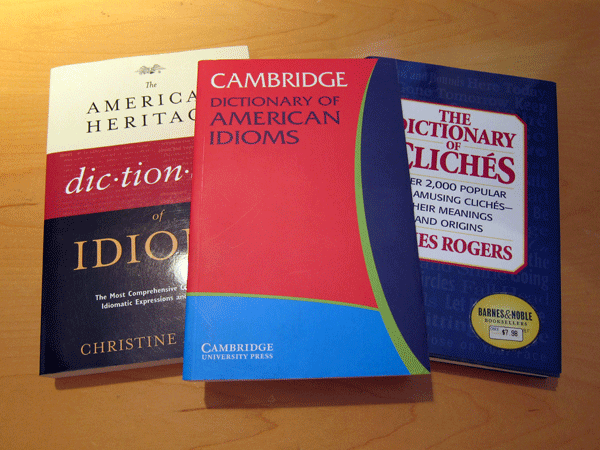
I have a few different dictionaries of phrases and idioms that are great if I need to do a bunch of cartoons on, say, eggs:
- Walking on eggshells
- Egg on your face
- Egg him on
- Don’t put all your eggs in one basket
See? There’s at least some places to start.
Flipboard & Zite –
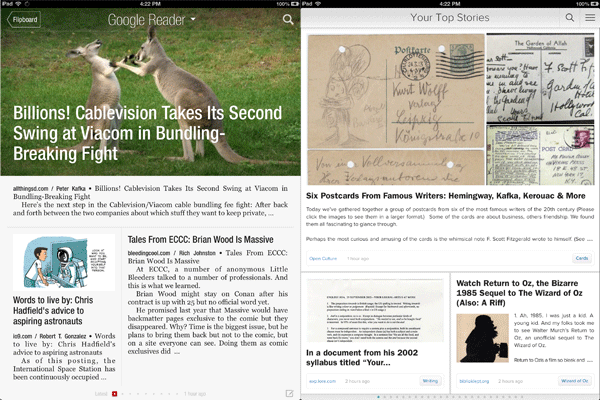
I love my iPad, and Flipboard makes keeping on top of blogs and tweets and all that quick, easy, and beautiful. Zite is a more recent addition and, while it reminds me of Flipboard, it gives me a whole different bunch of interesting content.
LIke the paper, you never know where the treasure is buried, so with either app, it’s good to just read.
Sentence Examples –
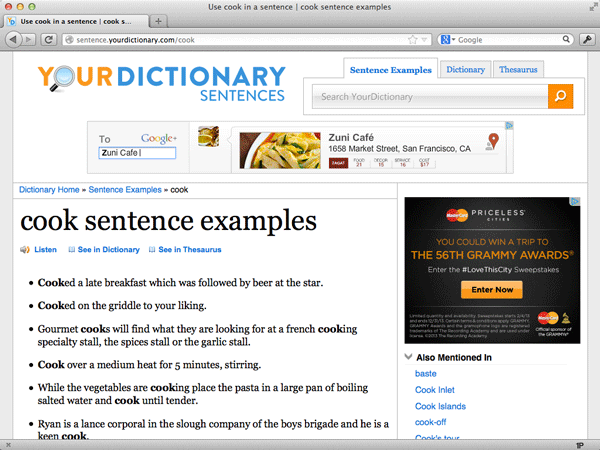
A more recent find, Sentence Examples is, well, just that. You can either search for a word like “cow”, or you can just browse around to see what strikes your fancy. It’s good for looking at words in context from all sorts of different angles.
Twitter Timeline –
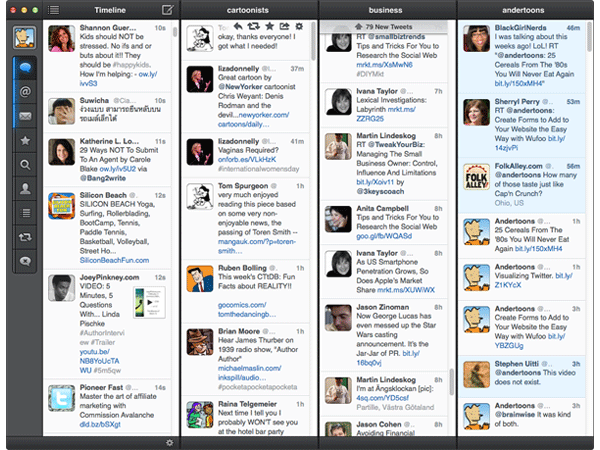
I’ve got a lot of followers on Twitter, and I often have Tweetbot up when I’m working. I’d forgotten to close it while writing the other day and glanced up and saw a comment in my timeline that led to a really good cartoon. I tried it again a while later and had another random inspiring moment. I don’t know if this will continue to bear fruit, but right now it’s a great source.
Chon Day –
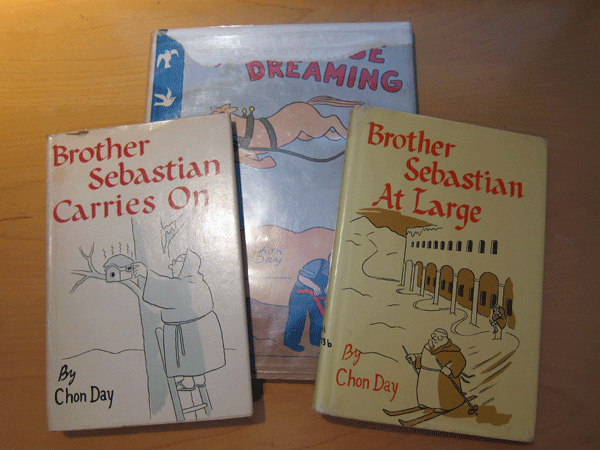
When I’m really stuck and feeling low I pull out some Chon Day and just marvel at what an amazing cartoonist he was. Sometimes it gets my gears turning, sometimes not, but it’s always inspiring.
Idea Box –

Although it’s been more difficult to keep full recently, I normally write my ideas down on scraps of paper and toss them into what I’ve dubbed my Idea Box. Ideas generally sit in there for a few weeks and then, when I’m ready to draw, I pull a bunch out and see them with fresh eyes. If they’re still good, they get drawn up. If they’re not so good, often I can see where I went wrong or another take on the same idea. And I like the thought of all those ideas sort of marinating together for a while.
Get Up –
Writing is a lot of sitting and staring. A lot of sitting and staring. And for the most part I’ve gotten comfortable with putting in the time. But sometimes when nothing is working I find getting up and doing something else will knock some ideas loose. Do some dishes. Vacuum. Go for a walk. You’ll be surprised at how a little movement will get things moving.
Give Up –
When all else fails, sometimes you just have to put it down and come back another day. It’s hard not to be disappointed or feel defeated, but I try to look at it like I’m priming a pump. And almost always the next day the ideas start flowing again.
So there are some of the techniques I use to keep writing cartoons. Any other suggestions you’d care to share?
Here’s a few more posts on writing cartoons:

